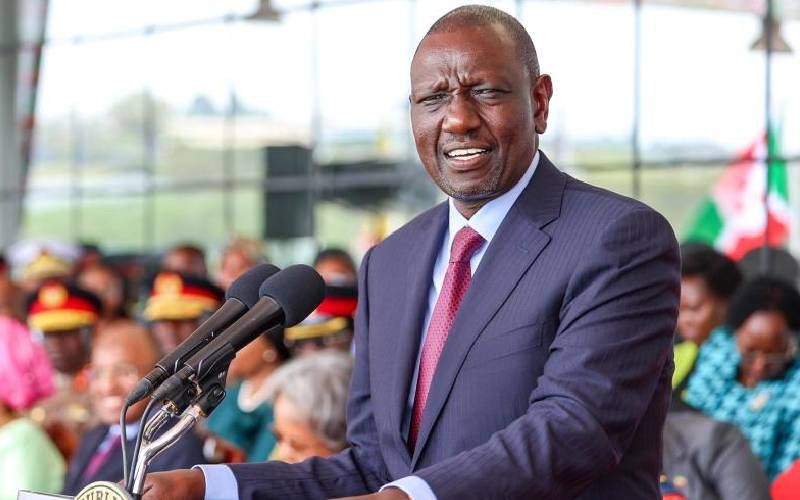Last month, a high-level trade mission from Switzerland visited Nairobi. Switzerland’s was not the only business delegation that visited Kenya. Ireland, Sweden, Belgium, The Netherlands, and the US have also had similar delegations over the past few months.
Shortly after the departure of the Swiss business mission, I bumped into several people who had questions about the impact of Switzerland’s trade mission: Were there any business deals signed? With whom? How much money would be invested in Kenya, and how soon?
These are all good questions. I was made to understand that the eagerness for new investment is tied to the need to create more jobs for the youth in Kenya.
Therefore, I feel I have an obligation to provide answers not only to the Kenyans who know me personally but to Kenyans in general. So, let me explain how such trade missions work.
Generally speaking, most trade and investments are undertaken by investors focusing on their neighbouring countries.
Kenyan banks, insurance companies, and retailers, for example, are to be found in Uganda, Rwanda, Tanzania, South Sudan and even in Democratic Republic of the Congo.
These investments are normally done by the private sector on its own. You do not, for example, have to explain to Equity Bank or Jubilee Insurance the investment opportunities in Eastern Africa or the Great Lakes region.
The same is true for Switzerland. Swiss companies do business in Germany, France, Italy, Austria or the United Kingdom based on their own initiative, normally without any assistance from the Swiss government.
But when Swiss businesses want to invest in regions and continents far from home, there is an established procedure for how things are done. Of primary importance is an official representation in that region.
Well, Switzerland has had representation in Kenya through a consulate in Nairobi since 1955; and, after 1964, we had a full embassy. Embassies, consulates and business hubs established in nations of particular economic interest to Switzerland inform their government and businesses at home about investment opportunities in their respective countries and regions.
That’s exactly what my embassy has been doing over the past years. Fortunately for us, the top leadership of my country has shown a keen interest in Kenya.
In 2018, the President of the Swiss Confederation visited Kenya and spoke about Kenya ‘as a business case’ for Switzerland.
That was a strong signal to the Swiss businesses back home. The Swiss State Secretary of Economic Affairs followed up with a trade mission in November this year.
So, here is the essential point: You do trade missions to countries far from home in which you already have an interest. It’s a kind of ‘expedition’ to explore new markets, where you believe there is good potential. Now how does a trade mission work?
Countries with state-owned enterprises and state-owned export banks normally sign trade deals with the respective government. This is a government-to-government deal making, usually done in combination with loans.
Stay informed. Subscribe to our newsletter
This is not the Swiss way of doing business. Switzerland has a vibrant private sector. And it is the private sector that is looking for business opportunities.
Furthermore, Swiss businesses are interested in the existing legal, financial and political framework of a country.
Are Kenya’s policies and legislative frameworks investor-friendly? Are the Kenyan officials willing to take their time to meet with the Swiss business representatives?
I am happy to report that the Swiss trade mission was incredibly well received by the Kenyan authorities. In addition, the Swiss businesses want to learn from Swiss companies which are already established here.
What are the positive or challenging experiences they have had in Kenya? What can be learnt from them?
That’s how a Swiss trade mission works. It lays a strong, and indispensable, foundation for future investment.
When the Governor of the Central Bank of Kenya, Dr Patrick Njoroge, spoke to the Swiss investors, he compared Kenya and its investment opportunities with a rose: Beautiful, but with some thorns.
An investor and business owner from abroad needs to grasp the beauty of the rose but must be mindful of the thorns that go with it. That’s what a trade mission is meant for – to understand the ‘rose’ and report back home about it.
Dr Heckner, Ambassador of Switzerland to Kenya.
 The Standard Group Plc is a
multi-media organization with investments in media platforms spanning newspaper
print operations, television, radio broadcasting, digital and online services. The
Standard Group is recognized as a leading multi-media house in Kenya with a key
influence in matters of national and international interest.
The Standard Group Plc is a
multi-media organization with investments in media platforms spanning newspaper
print operations, television, radio broadcasting, digital and online services. The
Standard Group is recognized as a leading multi-media house in Kenya with a key
influence in matters of national and international interest.
 The Standard Group Plc is a
multi-media organization with investments in media platforms spanning newspaper
print operations, television, radio broadcasting, digital and online services. The
Standard Group is recognized as a leading multi-media house in Kenya with a key
influence in matters of national and international interest.
The Standard Group Plc is a
multi-media organization with investments in media platforms spanning newspaper
print operations, television, radio broadcasting, digital and online services. The
Standard Group is recognized as a leading multi-media house in Kenya with a key
influence in matters of national and international interest.









